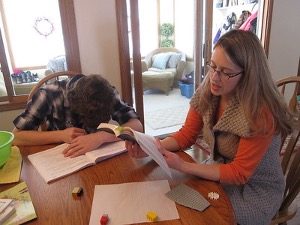
“It’s August 13, 1961 – the day East Berlin starts building the wall,” my grandma remembers.
“On Sunday night, August 13, Walter Ulbricht, East German head of state, issues an order to close the Berlin border. Police forces put up barbed wire fences. Within one day, West Berlin became an island in the sea of communism. Trains do not run anymore, and West and East Berliners stand shocked on opposite sides of the border.
I hear about it at Moabit hospital, where I just gave birth to my first child on August 9. I remember being afraid of a new war and feeling helpless in the hospital, alone with my child, barely 20 years old. Also, we’re separated from our family. My grandparents lived in the Russian sector after the war, just ten minutes from where we lived in the American sector. My husband had fled to West Berlin from Rostock in the East to marry me. His parents, grandparents, sister, and other relatives still live there. I feel so helpless and yearn for my family. The future seems so unsure.”










 Have you ever felt like not watching movies for a while just because you saw one that’s so damn good you knew watching anything else after it would just disappoint you? This is the spell that Mulholland Drive has cast on me.
Have you ever felt like not watching movies for a while just because you saw one that’s so damn good you knew watching anything else after it would just disappoint you? This is the spell that Mulholland Drive has cast on me.